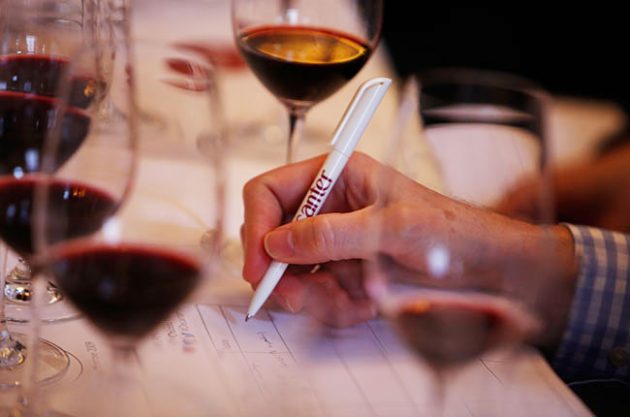An American friend sent me a copy of Bianca Bosker’s July 29th New Yorker article entitled ‘Is There a Better…

Elaborate wine descriptions improve taste – study
Critics and producers have fresh ammunition to back some of their more flowery wine tasting notes after new research suggested that elaborate descriptions really can help people to enjoy wines more.
Researchers in Australia found that more creative and vivid wine descriptions on bottle labels, including the back-story to a winery, can encourage people to spend more money and increase their enjoyment after popping the cork.
But, there was a sting in the tail, too.
Wines that didn’t live up to their descriptions ran the risk of turning drinkers away, according to the study, conducted by the University of Adelaide in South Australia and published in the Food Reseearch International journal.
There is an ongoing debate in the wine world over what makes a good tasting note.
Read more below
Also read:
Researchers asked 126 ‘regular white wine drinkers’ to assess Chardonnay, Riesling and Sauvignon Blanc wines with three levels of information:
- A blind tasting with no information
- The provision of a basic sensory description
- Provision of an elaborate/emotional description.
‘These findings have important implications for wine producers and the hospitality industry in that descriptions require more than just wine tasting notes,’ said Dr Lukas Danner, post-doctoral research fellow and first author on the study.
‘Companies could even consider involving consumers in label description optimisation.’
Tesco, the UK supermarket, experimented with this in 2014 after announcing it would allow members of its online wine community to devise tasting notes for 100 of its own-brand wines. It subsequently turned those descriptions into word clouds to use as marketing.
Tesco’s online wine community has since been closed.
Several critics take the view that wine descriptions always have a personal edge to them.
Decanter.com columnist Andrew Jefford identified three main elements that should be apparent in a good wine description.
First, a tasting note must convey the reviewer’s tasting skills. Second, it must communicate with enthusiasm and, third, there must be some ‘genuine literary skill’.
More articles like this:
Writing wine tasting notes that carry practical relevance and literary value is a tricky business, as explained in the column…
Don’t get caught out at tastings….
Heard wine experts referring to the tannin scale…?
Where does that after-taste come from?…
The Decanter.com tasting notes quiz – test your knowledge See more Decanter.com wine quizzes
